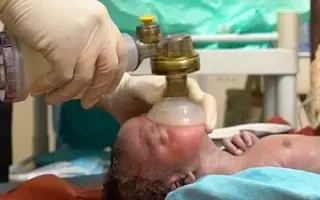- Home
- Medical news & Guidelines
- Anesthesiology
- Cardiology and CTVS
- Critical Care
- Dentistry
- Dermatology
- Diabetes and Endocrinology
- ENT
- Gastroenterology
- Medicine
- Nephrology
- Neurology
- Obstretics-Gynaecology
- Oncology
- Ophthalmology
- Orthopaedics
- Pediatrics-Neonatology
- Psychiatry
- Pulmonology
- Radiology
- Surgery
- Urology
- Laboratory Medicine
- Diet
- Nursing
- Paramedical
- Physiotherapy
- Health news
- Fact Check
- Bone Health Fact Check
- Brain Health Fact Check
- Cancer Related Fact Check
- Child Care Fact Check
- Dental and oral health fact check
- Diabetes and metabolic health fact check
- Diet and Nutrition Fact Check
- Eye and ENT Care Fact Check
- Fitness fact check
- Gut health fact check
- Heart health fact check
- Kidney health fact check
- Medical education fact check
- Men's health fact check
- Respiratory fact check
- Skin and hair care fact check
- Vaccine and Immunization fact check
- Women's health fact check
- AYUSH
- State News
- Andaman and Nicobar Islands
- Andhra Pradesh
- Arunachal Pradesh
- Assam
- Bihar
- Chandigarh
- Chattisgarh
- Dadra and Nagar Haveli
- Daman and Diu
- Delhi
- Goa
- Gujarat
- Haryana
- Himachal Pradesh
- Jammu & Kashmir
- Jharkhand
- Karnataka
- Kerala
- Ladakh
- Lakshadweep
- Madhya Pradesh
- Maharashtra
- Manipur
- Meghalaya
- Mizoram
- Nagaland
- Odisha
- Puducherry
- Punjab
- Rajasthan
- Sikkim
- Tamil Nadu
- Telangana
- Tripura
- Uttar Pradesh
- Uttrakhand
- West Bengal
- Medical Education
- Industry
Increased resuscitation need among neonates born to COVID-19 positive mothers, finds study

The knowledge about the epidemiology, clinical characteristics, prevention, and treatment of SARS-CoV-2 infection is continually evolving. Limited evidence exists on the perinatal transmission and the management of severe acute respiratory syndrome coronavirus 2 (SARS-CoV-2) infection among newborns, especially from the developing world. Praveen et al conducted a study and confirmed increased need of resuscitation and morbidity among neonates born to COVID 19 infected mothers.
The study was conducted at Post-Graduate Institute of Medical Education and Research(Chandigarh) and was published in latest edition of Indian Pediatrics Journal.
In this prospective cohort study, data was collected from NNF COVID-19 registry which included 1711 neonates constituting 1589 intramural neonates and 122 extramural neonates. Out of 1589 intramural neonates, 259 were excluded as testing was not done , hence 1330 neonates were analysed in this group. All neonates were monitored for clinical symptoms for the first seven days after birth and for as long as the mother was admitted to the hospital. The primary outcome measures were- the incidence of perinatal transmission; and the rates of SARS-CoV-2 virus positivity in the neonates in association with mode of delivery, type of feeding and care practices. The secondary outcomes were respiratory morbidities, the need for respiratory support, and mortality in these infants.
Major findings of the study are:
-Researchers found a significantly higher incidence of perinatal transmission than that reported in recent reviews as evidenced by 143(10.8%) neonates being positive in the present study.
-Amongst the intramural newborn infants, 106 (8%) were positive for SARS-CoV-2 within 72 hours (perinatal transmission) and 21 (1.5%) beyond 72 hours (horizontal transmission) of birth.
-The risk of transmission was not associated with mode of delivery or type of feeding.
-Premature delivery rate(20.7%) was high among COVID positive mothers which is similar to other studies.
-SARS-CoV-2 positive neonates were five times more likely to be symptomatic and twice more likely to need resuscitation. Also the need for NICU admission , surfactant therapy and inotropic support was higher among COVID infected neonates.
SARS-CoV2 infection may have a varied presentation in neonates but respiratory distress and sepsis like features were most reported in this study. Some of the variations in NICU admission rates may be due to local protocols for admission and isolation rather than due to the illness per se. Prematurity is an obvious confounder for higher respiratory and other morbidities in the SARS-CoV-2 positive group. However, the difference in prematurity rates is unlikely to explain the magnitude of differences in morbidities.
Authors conclude-"Breastfeeding and rooming-in seem to be safe but require compliance with additional precautions".
Source: NATIONAL NEONATOLOGY FORUM (NNF) COVID-19 REGISTRY GROUP. Outcomes of Neonates Born to Mothers with Coronavirus Disease 2019 (COVID-19) - National Neonatology Forum (NNF) India COVID-19 Registry. Indian Pediatr. 2021 Mar 20:S097475591600300.
Dr Kamal Kant Kohli-MBBS, DTCD- a chest specialist with more than 30 years of practice and a flair for writing clinical articles, Dr Kamal Kant Kohli joined Medical Dialogues as a Chief Editor of Medical News. Besides writing articles, as an editor, he proofreads and verifies all the medical content published on Medical Dialogues including those coming from journals, studies,medical conferences,guidelines etc. Email: drkohli@medicaldialogues.in. Contact no. 011-43720751


